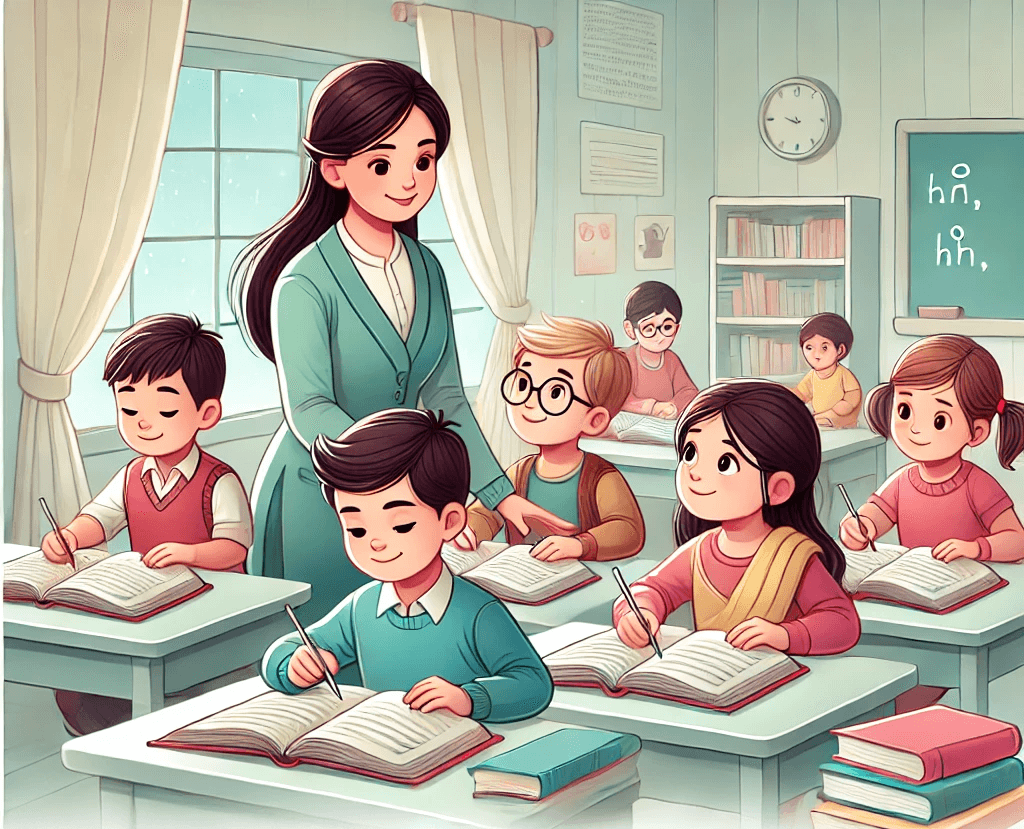बेसिक शिक्षा का महत्व
बेसिक शिक्षा किसी भी बच्चे के जीवन में सबसे महत्वपूर्ण चरण है। यह वह आधार है, जिस पर उसके संपूर्ण भविष्य की नींव रखी जाती है। प्राथमिक शिक्षा का उद्देश्य न केवल पढ़ाई-लिखाई की शुरुआत करना है, बल्कि बच्चों में सीखने की आदत, आत्मविश्वास और सोचने की क्षमता विकसित करना भी है।
बच्चों का पहला स्कूल अनुभव उनकी पूरी जीवन यात्रा को प्रभावित करता है। छोटी कक्षाओं में दी गई शिक्षा बच्चों को सही-गलत का ज्ञान देती है और सामाजिक तौर-तरीकों से परिचित कराती है। जब बच्चे बेसिक शिक्षा प्राप्त करते हैं, तो उनकी सीखने की क्षमता बढ़ती है और उनकी जिज्ञासा को प्रोत्साहन मिलता है।
बेसिक शिक्षा का योगदान:
- सोचने और समझने की क्षमता का विकास: बेसिक शिक्षा बच्चों को समस्या सुलझाने की कला सिखाती है, जिससे उनका मस्तिष्क और अधिक सक्रिय होता है। वे न केवल सवाल पूछना सीखते हैं बल्कि सही उत्तर खोजने में भी सक्षम होते हैं।
- व्यक्तित्व का निर्माण: स्कूल का वातावरण बच्चों के व्यक्तित्व को आकार देता है। शिक्षकों और सहपाठियों के साथ बातचीत से बच्चे सहनशीलता, मित्रता, और सहयोग जैसे गुण सीखते हैं, जो उनके चरित्र निर्माण में सहायक होते हैं।
- आत्मविश्वास में वृद्धि: जब बच्चे पढ़ाई में सफल होते हैं, छोटी-छोटी बातें सीखते हैं, या अपनी कक्षा में अच्छा प्रदर्शन करते हैं, तो उनका आत्मविश्वास बढ़ता है। यह आत्मविश्वास उनके जीवन के हर क्षेत्र में उन्हें साहसी बनाता है।
- सामाजिक और नैतिक मूल्यों की नींव: बच्चों को बेसिक शिक्षा में समाज के नियम और नैतिकता के बारे में भी बताया जाता है, जिससे वे सही और गलत का फर्क समझ पाते हैं। यह समाज में जिम्मेदार नागरिक बनने की दिशा में पहला कदम होता है।
निष्कर्ष: बेसिक शिक्षा बच्चों के भविष्य की नींव है। यह न केवल उनके ज्ञान और बौद्धिक विकास को बढ़ावा देती है, बल्कि उन्हें जिम्मेदार, आत्मनिर्भर और समाज के लिए योगदानकारी नागरिक बनाती है।
The Importance of Basic Education
Basic education is one of the most crucial stages in a child’s life. It lays the foundation for their entire future. The purpose of primary education is not only to initiate reading and writing but also to develop learning habits, self-confidence, and critical thinking skills in children.
A child’s first experience in school shapes their entire life journey. Education in the early years gives children a sense of right and wrong and introduces them to social behaviors. When children receive basic education, their ability to learn improves, and their curiosity is encouraged.
Contribution of Basic Education:
- Development of Thinking and Understanding Skills: Basic education teaches children the art of problem-solving, which activates their minds further. They learn not only to ask questions but also to find the right answers.
- Personality Building: The school environment shapes a child’s personality. Through interactions with teachers and peers, children learn qualities like tolerance, friendship, and cooperation, which contribute to their character development.
- Boosting Self-Confidence: When children achieve success in studies, learn small things, or perform well in class, their self-confidence grows. This confidence helps them become bold in every aspect of their lives.
- Foundation of Social and Moral Values: In basic education, children are also introduced to the rules of society and morality, helping them differentiate between right and wrong. This serves as the first step toward becoming responsible citizens in society.
Conclusion: Basic education is the foundation of a child’s future. It not only enhances their knowledge and intellectual growth but also prepares them to be responsible, self-reliant, and contributing citizens in society.
